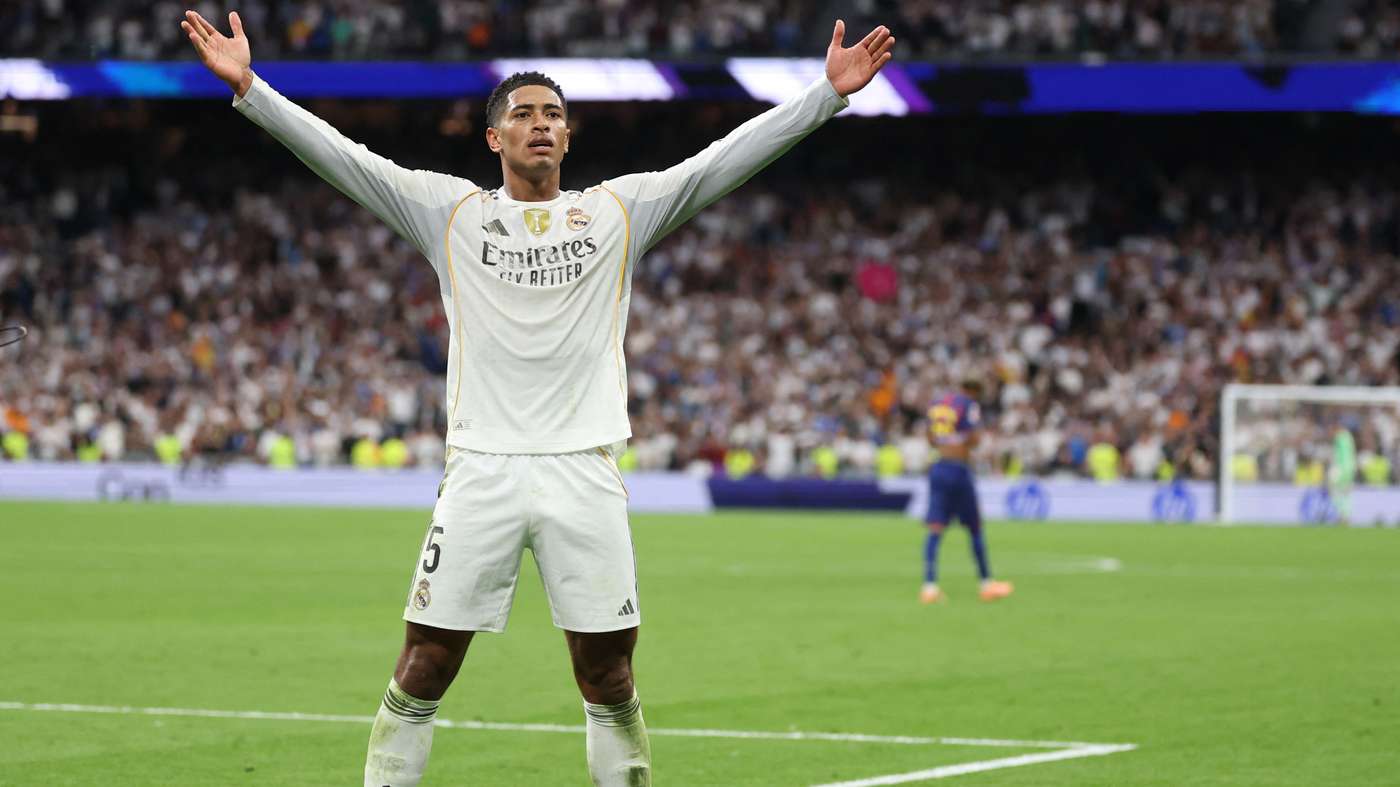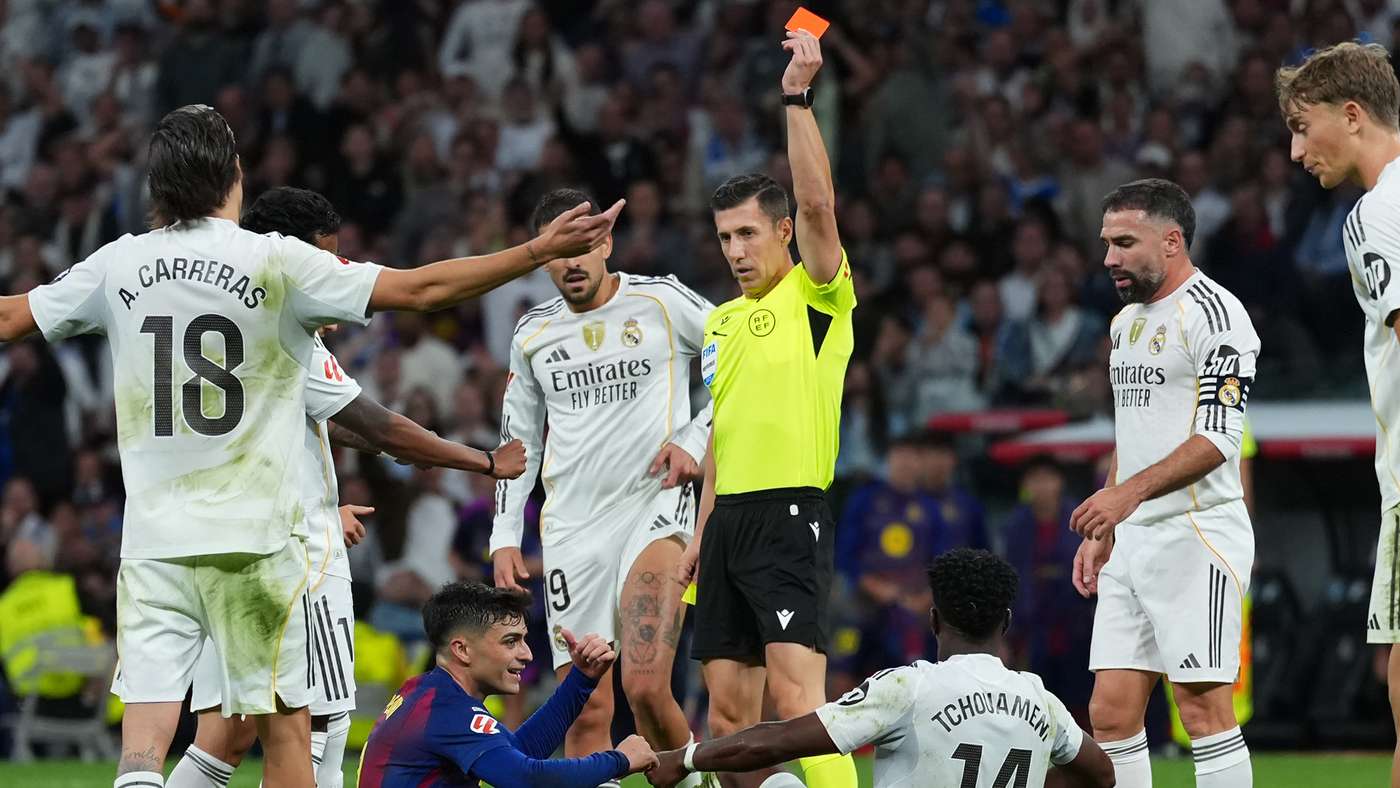El Clasico Referee Debacle: Lahoz's Reversal Sparks Debate Over a Late Penalty
28 October 2025

Controversy in El Clasico Grips the Referee Debate
The Clasico between Real Madrid and Barcelona, played last Sunday, ignited a firestorm around officiating as Real Madrid claimed a 2-1 victory.
One of the most heated moments came late in the game when Dani Carvajal challenged Ronald Araújo inside the box while trying to reach a cross from Marc Casadó.
Carvajal, seemingly distracted by the ball, shoved the Uruguayan defender from behind, unbalancing him and sending him to the turf. Araújo appealed for a penalty, but referee César Soto Grado did not award one, and VAR did not review.
Television replays showed a clear shove, sparking a wave of talk across Spanish media about the decision's validity.
On Cadena COPE, former international referee Antonio Mateu Lahoz initially argued the contact warranted a foul, saying Carvajal had taken a big risk by pushing Araújo from behind.
He added that the contact was not shoulder-to-shoulder, and in a different match this could have been a penalty.
Lahoz later revised his stance during an analysis on El Día Después, saying the moment was part of normal play inside the penalty area.
He explained that the moment was a routine football action, the contact between back and shoulder was natural, so no foul should have been called.
That reversal revived the debate about how referees interpret actions in the box, especially in big matches decided by fine margins.
In Mundo Deportivo's former head of refereeing, César Pareña-Montero, the incident was called a penalty, arguing Carvajal never tried to play the ball but deliberately impeded Araújo. He claimed the replay showed clearly that Carvajal prevented Araújo from reaching the ball rather than challenging for it.
Thus the Clasico debate moved beyond the pitch, underscoring the difficulty of officiating such fixtures.
After the match, Alfonso Pérez Burrull, a veteran analyst for Radio Marca, offered views on several other moments in the game.
At one Madrid attack, Vinícius Júnior went down in the Barcelona area following a tangle with Lamine Yamal, and the referee pointed to the spot before VAR intervened and overturned.
Perez Burrull argued that Vinícius had the advantage and that Yamal did not touch the ball, implying the decision should have stood.
Another flashpoint involved Jude Bellingham's goal, which Barcelona claimed was negated by an earlier foul on Pau Kobarsci inside the box.
Perez Burrull rejected that claim, saying the later action was not a foul and the goal was allowed after VAR review.
In the second half, a handball by Eric García inside the area prompted a larger debate, as some argued the defender raised his arm unnaturally.
Perez Burrull contended that the hand was in an obvious position and that the referee should have awarded a penalty to Real Madrid, but the official hesitated before using VAR and awarding the spot kick to Madrid, which Mbappé converted.
In the end, officiating remained a central thread of the Clasico, shaping the mood, the tempo, and perhaps the final score.
Media pundits continued to discuss other incidents, highlighting how a single decision can tilt a classic game's outcome.
And so the discussion rolls on, with coaches, players, and fans debating the delicate balance between courage, interpretation, and the video replay that keeps rewriting the story.
Punchline 1: If referees had a magic wand, every decision would be a viral moment.
Punchline 2: And if VAR had a personality, it would be that friend who finally tells you the truth, but only after three replays.



